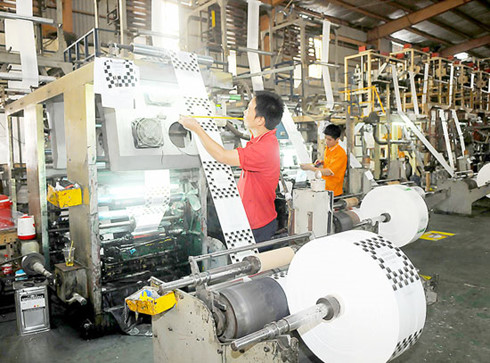Enabling domestic private sector investment in Vietnam
 |
A report last year by the World Bank, they noted, showed that Vietnam ranked 78th out of 189 countries in the ease of doing business index with poor-quality infrastructure and business environment cited as the two major constraints to growth.
There is an infrastructure backlog, particularly in the remote and rural areas, and the investment needed to cure the problem is far beyond the Vietnam government’s resources, said the World Bank report.
Thus, far too many Vietnamese still live in remote and rural areas that have severely restricted access to commercial markets and services that many people around the globe take for granted.
Better infrastructure and continuing economic reform to build the domestic private sector are needed for the Government to reduce poverty and reach its ambitious goal of becoming an industrialized country by the year 2020.
The fastest growing region in Vietnam is the Mekong Delta, which is bound to be the future agricultural and industrial hub of the country. But for that to happen, better infrastructure need be constructed.
Most of the country is also plagued by critical supply-side constraints linking producers and consumers, whether that connectivity lie with connecting people to essential services such as hospitals and schools or to commercial services.
One of the most direct and practical solutions is through the expansion of the domestic sector and finding innovative ways to encourage them to fund the construction of badly needed infrastructure, said Nguyen Duc Thanh at the forum.
Mr Thanh, who is the director of the Vietnam Centre for Economic and Policy Research, said there has been for far too long an overreliance on the foreign sector for economic growth and too little evolution of the domestic sector.
The foreign sector, said Mr Thanh, currently accounts for two-thirds of exports and one-quarter of the country’s employment.
As a result, the domestic sector, once the major driver of the country’s economic growth, has been stymied— constrained by lack of competitiveness with foreigners, limited access to finances and a slackening of consumer demand by Vietnamese, who increasingly prefer to purchase foreign goods to those made locally.
One practical solution, according to Mr Thanh is straightforward.
He suggests that all state-owned companies be sold off to the domestic sector and let private sector ingenuity operate them profitably and use those earnings to invest in and solve the country’s infrastructure and connectivity problems.
Mr Thanh believes state owned enterprises are bloated with bureaucracy and inefficiency and are a drain on the country’s limited resources rather than a contributor to them.
The faster the Government enables and engages the domestic private sector to invest in infrastructure throughout the remote and rural areas of the country and build a national supply chain the better, said Mr Thanh.
Truong Dinh Tuyen, the former minister of the Ministry of Industry and Trade agreed. There are many obstacles to overcome in development of the domestic private sector, however, transferring state owned enterprises to the private sector is a good first step to prosperity.
In addition, domestic companies can benefit tremendously from identifying good examples of how foreign companies operate their businesses, and copy those policies and practices that are appropriate for Vietnam.
If domestic companies work closely with their foreign counterparts to share experiences, they will reap tremendous benefits by increasing their competitiveness that will pay off over the long-term by improving productivity and in turn prosperity.
What the stars mean:
★ Poor ★ ★ Promising ★★★ Good ★★★★ Very good ★★★★★ Exceptional
Latest News
More News
- Ho Chi Minh City hits $8.37 billion in FDI (December 29, 2025 | 08:28)
- Tax sector wraps up 2025 and sets priorities for next year (December 25, 2025 | 14:00)
- Heavy industries set for pilot greenhouse gas quotas (December 25, 2025 | 10:00)
- $250 million deal targets women-owned SMEs, sustainable agriculture (December 22, 2025 | 17:40)
- UOB sees Vietnam growth easing in fourth quarter (December 22, 2025 | 17:39)
- Government moves to establish International Financial Centre (December 21, 2025 | 21:00)
- Vietnam's IFC to target global investment flows (December 21, 2025 | 18:00)
- Ha Tinh breaks ground on major Vingroup industrial and energy projects (December 19, 2025 | 18:24)
- EVN launches major power infrastructure projects nationwide (December 19, 2025 | 18:17)
- VAL inaugurates second production line to meet domestic animal feed demand (December 19, 2025 | 16:37)

















 Mobile Version
Mobile Version